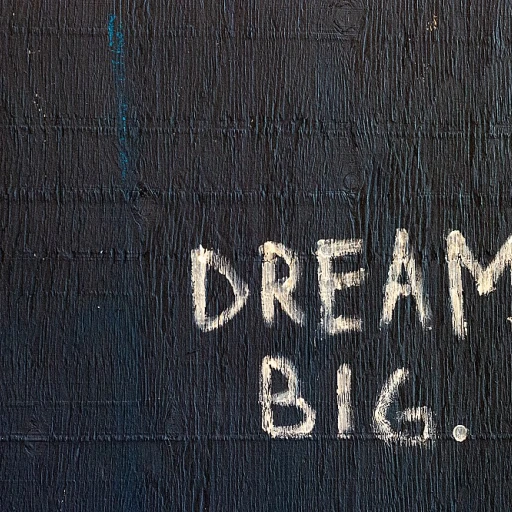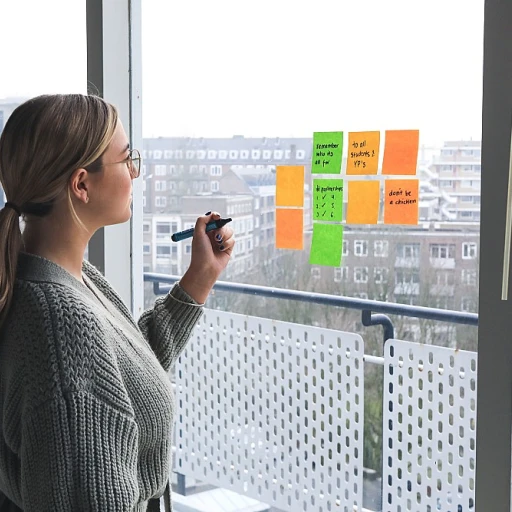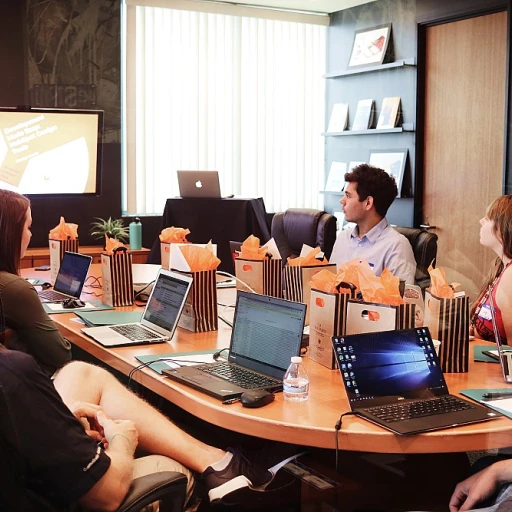
Understanding interviewer error in HR job interviews
Why Interviewer Error Matters in HR Job Interviews
When it comes to HR job interviews, the role of the interviewer is crucial. However, even experienced interviewers can make mistakes that affect the quality of the data collected and the overall fairness of the process. Interviewer error refers to any mistake or bias introduced by the interviewer during the interview process. This can impact both the candidate’s experience and the reliability of the information gathered.
Interviewer errors are not just about asking the wrong questions. They can also involve how questions are phrased, the tone used, or even non-verbal cues. These errors can lead to inaccurate assessments of candidates, which may result in hiring the wrong person or missing out on a great fit. Scholars in survey methodology and public opinion research have long studied how interviewer behaviors and question characteristics can influence respondents’ answers, affecting data quality and public health studies as well as HR interviews.
- Questionnaire design: Poorly designed interview questions or unclear question types can confuse candidates and lead to unreliable responses.
- Interviewer training: Without proper training, interviewers may unintentionally introduce bias or make errors in coding responses.
- Number of questions: Too many or too few questions can affect the depth and accuracy of the data collected from candidates.
- Characteristics of interviewers: Personal traits or behaviors of interviewers can influence how respondents answer, a phenomenon often referred to as interviewer effects.
Understanding these errors is essential for both candidates and HR professionals. For candidates, recognizing signs of interviewer error can help you navigate the interview more effectively. For interviewers, being aware of common pitfalls can improve data quality and fairness in hiring. If you want to learn more about handling challenging interview dynamics, check out this guide on navigating peer interview questions with confidence.
Common types of interviewer error
Frequent Pitfalls in HR Interview Practices
In HR job interviews, interviewer error can take many forms, often impacting the quality of data collected and the experience of candidates. Understanding these errors is crucial for both interviewers and respondents, as it helps improve the overall process and outcomes. Below are some of the most common types of interviewer error observed in HR interviews, as supported by research in survey methodology and public opinion studies.
- Leading or Biased Questions: When interviewers unintentionally phrase questions in a way that nudges candidates toward a particular answer, it can distort the data and affect the respondent’s performance. This is often linked to poor questionnaire design or lack of interviewer training.
- Inconsistent Questioning: Sometimes, interviewers ask different questions to different candidates or alter the number of questions, making it difficult to compare responses. This inconsistency can introduce bias and reduce data quality.
- Nonverbal Cues and Behaviors: Interviewer behaviors such as tone of voice, facial expressions, or body language can influence how respondents answer. These interviewer effects are well-documented in public opinion quarterly studies and can lead to error interviewer situations.
- Misinterpretation of Responses: Errors can occur when interviewers misunderstand or incorrectly code candidate answers, especially in interviews with open-ended question types. This can compromise the reliability of the data collected.
- Failure to Probe or Clarify: Sometimes, interviewers do not follow up on vague or incomplete answers, missing out on valuable information. Effective probing is a skill that requires proper interviewer training and awareness of question characteristics.
- Overlooking Sample Diversity: Interviewers may unconsciously favor respondents with certain characteristics, leading to a non-representative sample and skewed results. This is a significant concern in public health and opinion research, where data quality is paramount.
These errors not only affect the candidates’ experience but also the validity of the interview process. For a deeper look at language and behaviors that can make HR professionals uneasy, you might find this resource on phrases that make HR professionals uneasy helpful.
Understanding the characteristics interviewer and respondent bring to the table, as well as the design of the questionnaire, is essential for minimizing interviewer errors. Scholars emphasize the importance of interviewer training and standardized coding procedures to ensure reliable data and fair treatment of all candidates during interviews.
How interviewer error affects candidates
Impact of Interviewer Error on Candidate Experience and Data Quality
Interviewer error in HR job interviews can significantly affect both the candidate’s experience and the quality of data collected during the process. When interviewers make mistakes—whether in the way they ask questions, interpret responses, or interact with respondents—the consequences can ripple through the entire interview, influencing outcomes and perceptions.
- Distorted Responses: Poorly phrased or leading questions can cause candidates to misunderstand what is being asked. This often results in answers that do not accurately reflect the candidate’s true skills or experiences, impacting the reliability of the data collected.
- Reduced Data Quality: Errors in questionnaire design or inconsistent interviewer behaviors can introduce bias. For example, if an interviewer unintentionally signals approval or disapproval, respondents may alter their answers to align with perceived expectations, reducing the objectivity of the interview data.
- Increased Stress for Candidates: When candidates sense confusion or inconsistency in the interview process, their anxiety may rise. This can affect their performance, making it harder for interviewers to assess their true potential.
- Sample and Coding Issues: Inconsistent application of interview questions or coding responses can lead to unreliable results, especially when comparing data across multiple interviews or respondents. This is particularly relevant in survey methodology and public health research, where data quality is paramount.
- Public Opinion and Perception: Interviewer effects can influence public opinion studies, as errors may skew the results, leading to inaccurate conclusions about candidate characteristics or broader workforce trends.
Studies in Google Scholar and journals like Public Opinion Quarterly highlight how interviewer errors—such as inconsistent question types or inadequate interviewer training—can undermine the validity of interview outcomes. For organizations, this means that hiring decisions may be based on flawed data, while candidates may feel unfairly evaluated.
To address these challenges, companies are increasingly turning to technology and structured feedback systems. For example, using AI feedback platforms for effective company training can help standardize interviewer behaviors and improve data quality. This approach supports both interviewers and candidates by reducing the likelihood of errors and enhancing the overall interview experience.
Recognizing signs of interviewer error during your interview
Spotting Interviewer Error in Real Time
During HR job interviews, candidates often focus on their own performance, but it’s equally important to be aware of interviewer behaviors that may signal errors. Recognizing these signs can help you navigate the process more effectively and protect the quality of your responses.
- Inconsistent Questioning: If the interviewer asks different questions to different candidates or changes the number of questions without clear reasoning, this can introduce bias and affect data quality. Consistency in question types and questionnaire design is crucial for fair evaluation.
- Leading or Ambiguous Questions: Watch for questions that seem to guide you toward a specific answer or are unclear. Poorly designed interview questions can distort your responses and lead to interviewer error, as highlighted in survey methodology studies.
- Interruptions and Distractions: Frequent interruptions or lack of attention from the interviewer can disrupt your thought process. This behavior may result in incomplete data and lower the reliability of the interview sample.
- Nonverbal Cues: Interviewers’ body language, such as disinterest or impatience, can influence how respondents answer. Research in public opinion quarterly and public health interviews shows that interviewer effects can shape respondent behavior and the overall outcome.
- Inadequate Note-Taking or Coding: If the interviewer seems to struggle with recording your answers or coding responses, this could lead to errors in data collection. Proper interviewer training is essential to minimize such mistakes.
Scholars in survey methodology and public health emphasize that interviewer errors can significantly impact both the candidate’s experience and the validity of the interview data. Being alert to these characteristics interviewer and question characteristics can help you respond more confidently and ensure your perspective is accurately represented.
Strategies to handle interviewer error as a candidate
Staying Calm and Focused When Errors Occur
If you notice interviewer error during your HR job interview, it’s important to remain composed. Errors can happen for many reasons, such as unclear questions, inconsistent question types, or even interviewer behaviors that seem biased. Staying calm helps you respond thoughtfully and keeps the interview on track.Clarifying Ambiguous Questions
Sometimes, interviewers may ask questions that are vague or poorly worded. Politely ask for clarification if a question is unclear. For example, you might say, “Could you please clarify what you mean by that question?” This approach shows you are attentive to question characteristics and committed to providing accurate responses.Addressing Repetitive or Leading Questions
Interviewers may unintentionally repeat questions or ask leading ones that could influence your answers. If you notice a question is being repeated, you can acknowledge it by saying, “I believe I answered a similar question earlier, but I’m happy to elaborate.” For leading questions, try to answer honestly and provide context, rather than just agreeing with the interviewer’s suggestion.Managing Interruptions and Distractions
Distractions or frequent interruptions can affect data quality and your ability to answer effectively. If this happens, wait for the interviewer to finish and then continue your response. If necessary, politely ask if you can complete your answer before moving on to the next question.Documenting Your Experience
After the interview, make notes about any interviewer errors you observed. This can help you reflect on the interview process and prepare for future interviews. It also provides valuable feedback if you’re asked to evaluate the interview experience.- Stay focused on the question, not the error
- Ask for clarification when needed
- Be honest and provide context in your answers
- Take notes after the interview for your own reference
Understanding the Impact of Interviewer Training
Well-trained interviewers are less likely to make errors that affect candidates. However, not all organizations invest equally in interviewer training or survey methodology. Recognizing this helps you approach each interview with realistic expectations and adapt your strategies accordingly.When to Seek Feedback
If you feel interviewer error significantly impacted your interview, consider reaching out to the HR department for feedback. This can provide insight into their questionnaire design and help you understand how interviewer effects might have influenced your interview outcome. Remember, your experience as a respondent is valuable data for improving future interviews.What HR professionals can do to reduce interviewer error
Improving Interviewer Training and Awareness
One of the most effective ways HR professionals can reduce interviewer error is by investing in comprehensive interviewer training. Training should cover not only the technical aspects of interview questions and questionnaire design, but also the subtle influences of interviewer behaviors and question characteristics. Studies in survey methodology and public opinion research highlight how interviewer effects can impact data quality and candidate experience. By focusing on these areas, HR teams can help interviewers become more aware of their own biases and the potential for error during interviews.
Standardizing Interview Questions and Processes
Standardization is key to minimizing variability between interviews and interviewers. Using structured interview questions and clear coding protocols ensures that each candidate is evaluated on the same criteria. This reduces the risk of errors related to question types, number of questions, and inconsistent interviewer respondent interactions. Research in public health and opinion quarterly journals supports the use of standardized questionnaires to improve reliability and fairness in the selection process.
Monitoring and Reviewing Interview Data
Regularly reviewing interview data and outcomes helps HR professionals identify patterns of interviewer error. By analyzing a sample of interviews, HR can spot inconsistencies in how questions are asked or how responses are interpreted. This process can also reveal if certain interviewers or question types are more prone to errors. Utilizing feedback from both candidates and interviewers respondents can further enhance data quality and inform ongoing improvements.
Encouraging Reflective Practice Among Interviewers
Encouraging interviewers to reflect on their own performance and the characteristics of their interviews can foster continuous improvement. Reflection helps interviewers recognize their own tendencies, such as leading questions or unconscious bias, which can affect the respondent’s answers. HR professionals can facilitate this by providing feedback, sharing relevant study findings from sources like Google Scholar, and promoting open discussions about interviewer errors and best practices.
Adapting to Evolving Best Practices
Finally, HR professionals should stay informed about the latest research in survey methodology, questionnaire design, and public opinion. Adapting interview processes based on new evidence ensures that the organization remains committed to reducing interviewer error and improving the overall candidate experience. Regular updates to interviewer training and interview questions, informed by scholarly research, can help maintain high standards and data integrity.













